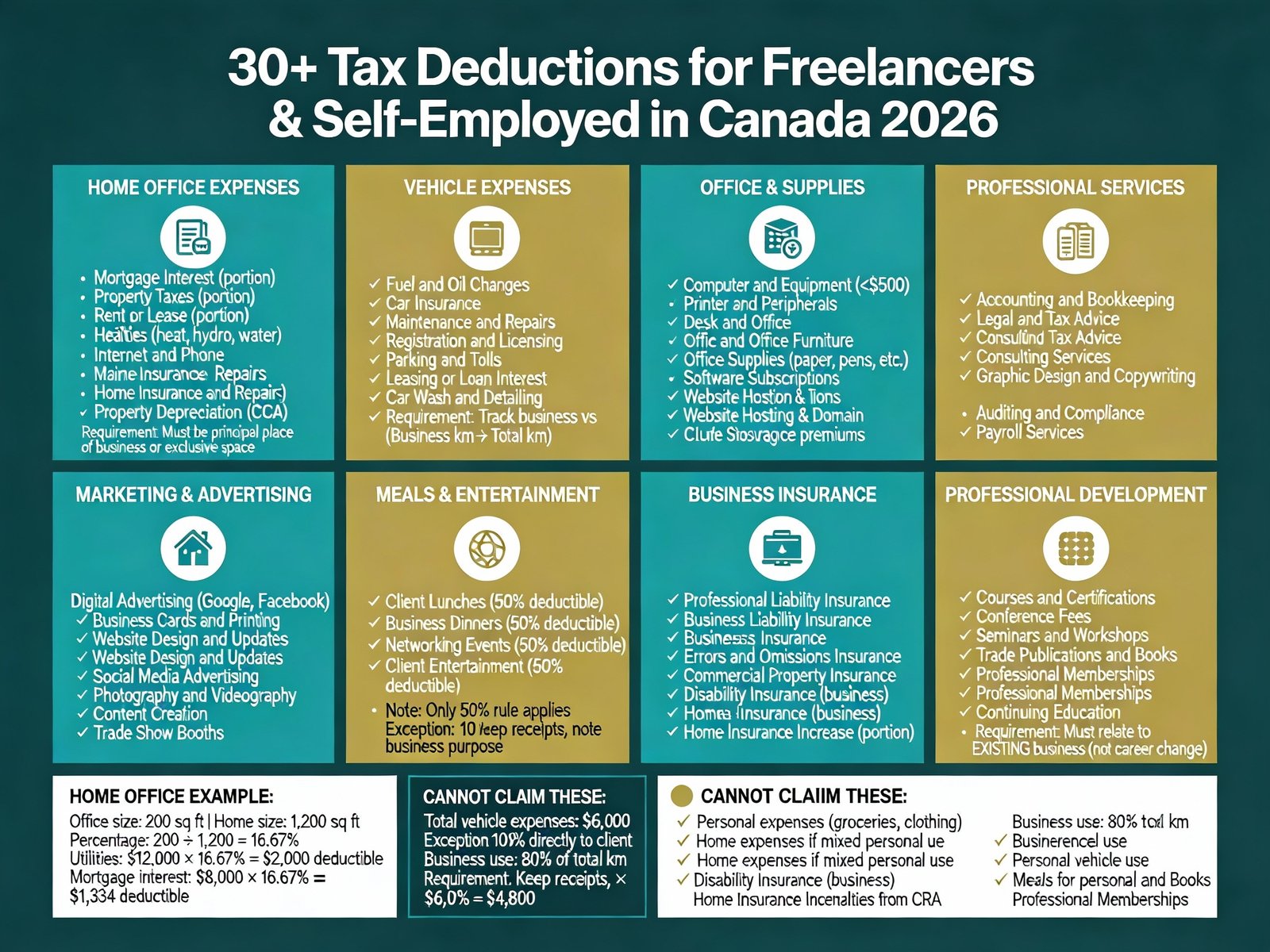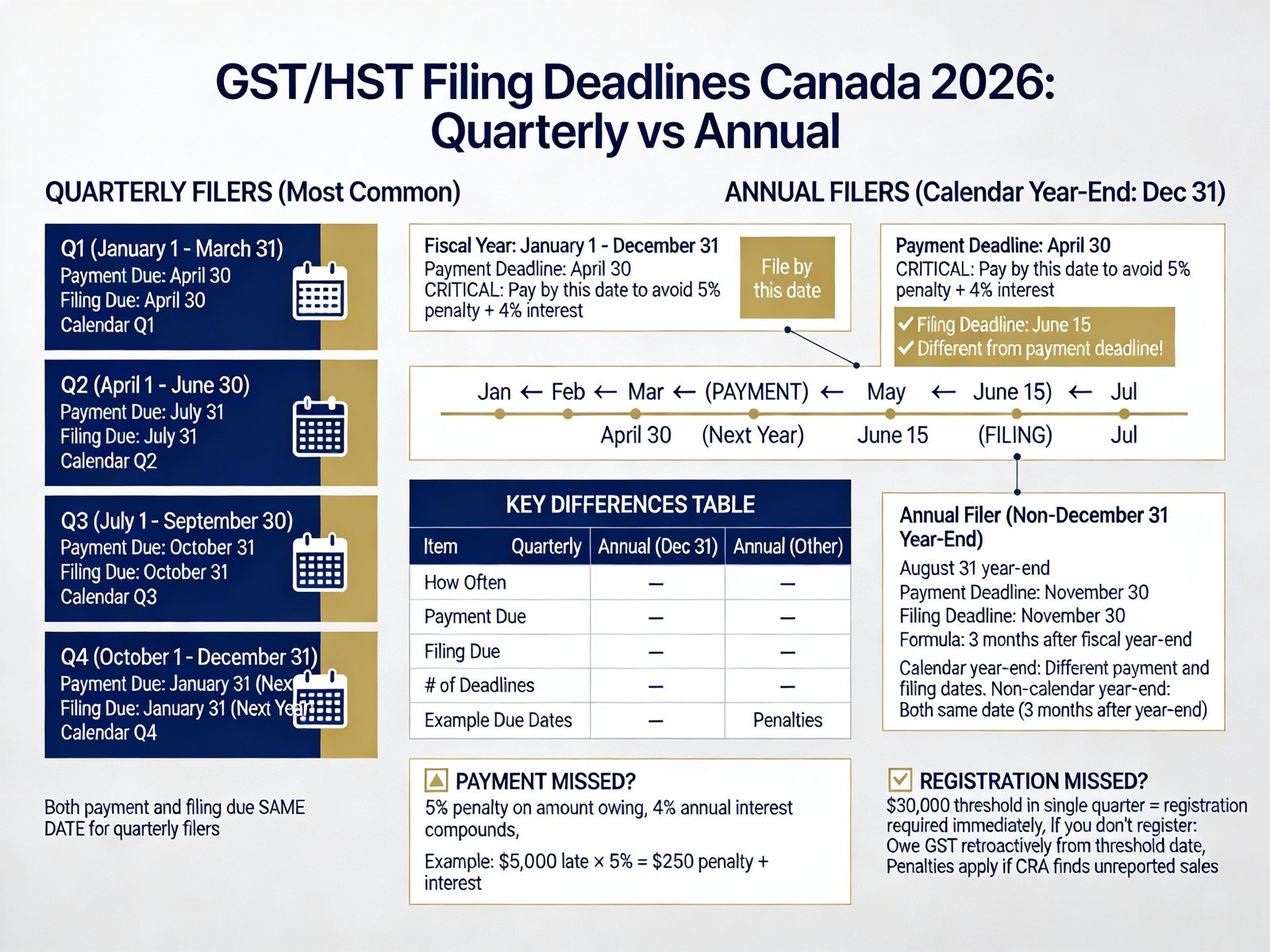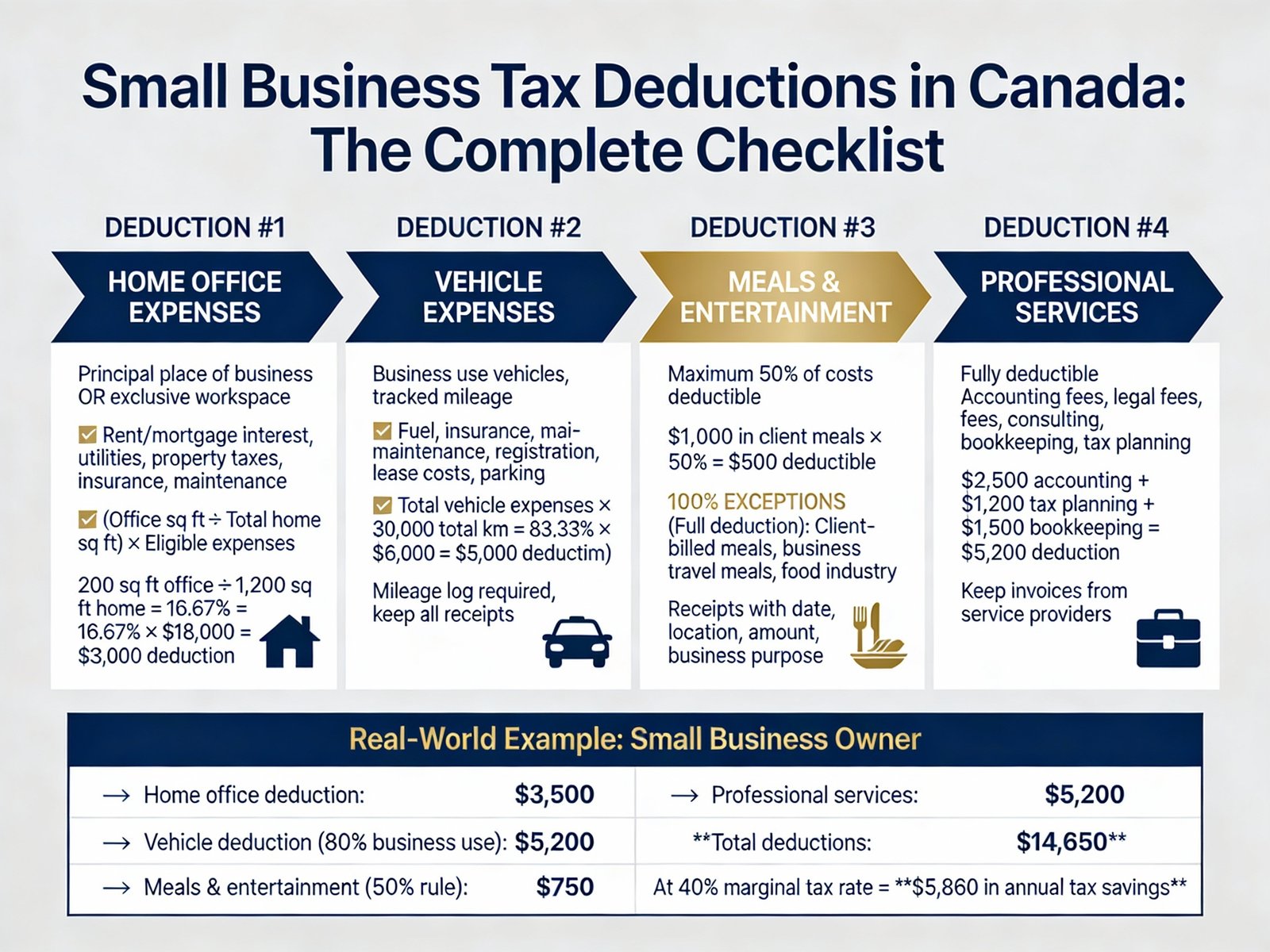
Tax Tips for Freelancers and Self-Employed in Canada
Executive Summary Canada's self-employed community faces unique tax challenges that salaried employees never encounter....
Providing Accounting & Tax service for in Canada.
File a corporation income tax return, look up tax rates, and learn about provincial and territorial corporate taxes.
Corporate income taxes: a high-level overview
This table summarizes the corporate tax rates, provincial and territorial corporation taxes, and tax credits.
Every resident corporation (excluding tax-exempt Crown corporations, Hutterite colonies, and registered charities) is required to file a company income tax (T2) return each fiscal year, even if no tax is due. This includes the following:
The majority of corporations can electronically file their returns via the Internet. Certain corporations with annual gross revenues over $1 million are required to comply.
In certain circumstances, non-resident corporations are required to file a T2 return. See Who is required to file a corporation income tax return (T2) by contacting Bomcas Accounting and tax services.
We offer two distinct T2 returns:
By comparing federal, provincial, and territory rates, you can determine when to use the lower or higher rate.
Provincial and territorial governments levy corporation taxes.
What’s new in tax reporting and credit claims for corporations, as well as related forms and publications.
The federal government’s rates.
Following the general tax cut, the net tax rate is 15%.
The net tax rate for private corporations run by Canadians that use the small business deduction is shown in the table below:
The lower rate is applicable to income that qualifies for the federal small business deduction. One of the components of the small business deduction is the company limit. Several provinces and territories have decided to adhere to the federal business restriction. Others set their own commercial boundaries.
All other income is taxed at a higher rate.
The table below summarizes the income tax rates and exemptions available to businesses in each province and territory (except Quebec and Alberta, which do not have corporation tax collection agreements with the CRA). These prices are effective as of January 1, 2021, and are subject to vary during the year.
What has changed recently in the world of business? Apart from federal income taxes, you’ll also have to figure out and pay provincial and territorial income taxes.
With the exception of Quebec and Alberta, provinces and territories pass their own corporate income tax legislation, which is then administered by the Canada Revenue Agency (CRA). It is necessary to compute provincial and/or territorial income taxes and credits on the federal return if the corporation has a permanent establishment in a province or territory other than these two. This is in addition to federal income taxes and credits.
Corporations from all provinces and territories should first determine whether or not Schedule 5 is required in their jurisdiction before proceeding forward.
In most cases, provinces and territories have two different tax rates. Check with Bomcas Accounting and Tax team for information on calculating provincial and territorial credits, refunds, and taxes, as well as other tax-related tax issues for each provinces and territories in Canada.
You should include the provincial or territorial tax on line 760 of your T2 Corporation Income Tax Return if you do not require Schedule 5 (and if you do not reside in Quebec or Alberta).
Federal income tax credits may be available to you.
Discover what a record is, your responsibilities, and the various types of records.
This section covers the designation of qualified dividends, Part III.1 tax information, and general and low-rate income pools.
Payment settlement, payment of your company tax amount, and prepayment of reassessments are all possibilities.
Businesses are usually compelled to pay their taxes in installments. Depending on the day it is due, you must pay your tax balance two or three months following the end of the fiscal year.
My Business Account can be used to request a variety of services, including an interest review, credit or refund transfer, payment search, a payment search request form, remittance vouchers, copies of notices and statements, customized statements, changes to mailing instructions or statement inhibition, and return envelopes.
Submit a request for reconsideration of your T2 return and read about the dates for reassessment.
Transfer pricing is a word that applies to both the cost of a transfer price memorandum and international transfer pricing.
Overseas spin-offs for shareholders of foreign corporations in Canada.
Source of information coming for CRA

Executive Summary Canada's self-employed community faces unique tax challenges that salaried employees never encounter....

Executive Summary Canada's Goods and Services Tax (GST) and Harmonized Sales Tax (HST) system...

Executive Summary Canada's approach to cryptocurrency taxation has become increasingly sophisticated, with the Canada...

Executive Summary Filing your personal income tax return online in Canada has become the...

Executive Summary For Canadian small business owners and self-employed professionals, understanding tax deductions and...

Executive Summary Canada's cannabis industry operates in a uniquely complex tax environment. While recreational...

Executive Summary Self-employed professionals face a unique retirement challenge: they receive no employer pension...

Executive Summary Choosing between QuickBooks Online and Xero is one of the most critical...








